Creating a responsible route to growth
How the Jameel Family shares the ambitions of the UN’s Sustainable Development Goals around work, infrastructure and responsible growth.
![]()
![]()
![]() Such are the literally world-changing ambitions of the United Nations’ Agenda 2030 with its 17 Sustainable Development Goals (SDGs), it is sometimes easy to overlook the fact that – at their heart – is a very simple idea: helping people.
Such are the literally world-changing ambitions of the United Nations’ Agenda 2030 with its 17 Sustainable Development Goals (SDGs), it is sometimes easy to overlook the fact that – at their heart – is a very simple idea: helping people.
Of course, ambitious targets around safeguarding the environment, protecting the planet, improving food and water systems, strengthening equality, transitioning to affordable clean energy, and so on, are vital, complex goals to pursue, in their own right. Each has far-reaching consequences for our society if we fail to achieve them. Indeed, our society as we know it – if not our planet – will struggle to survive if they are not achieved.
But underlying most of them is a much simpler objective that is sometimes lost in the shadow of the big ideas: helping people to live rewarding, satisfying – and above all most importantly sustainable – lives.
This is the idea at the heart of UN SDGs 8, 9 and 12:
- SDG 8 seeks to promote sustained, inclusive and sustainable economic growth, full and productive employment and decent work for all.
- SDG 9 aims to build resilient infrastructure, promote inclusive and sustainable industrialization and foster innovation, with sub-targets for issues like increasing access to ICT, upgrading infrastructure to support human well-being and improving access to financial services.
- SDG 12 is about ensuring sustainable consumption and production patterns. It includes sub-targets on halving food waste, increasing awareness of sustainability, and supporting sustainable tourism that creates jobs and promotes local culture.
As with so many of the SDGs, however, progress towards these goals around the world has been inconsistent, particularly during 2020-2021. By mid-2021, with over 3 million lives lost, the global economy disrupted, and all spheres of human life upended by the COVID-19 pandemic, progress across some of the goals may be said to have shifted from ‘slow’ to ‘reverse’.
The subsequent economic downturn has pushed between 119 and 124 million more people into extreme poverty in 2020 and the equivalent of 255 million full-time jobs were lost. Tourism was one of the sectors hit hardest. Globally, international arrivals decreased by 74% in 2020 compared to 2019, which represents a loss of US$ 1.3 trillion in inbound tourism expenditure, more than 11 times the loss resulting from the 2009 global crisis[1].
In terms of infrastructure and industry, the pandemic disrupted global value chains and restricted the movement of people and goods, resulting in a significant drop of 8.4% in manufacturing production in 2020. In fact, manufacturing in the least developed countries is expected to have grown by a negligible 1.2% in 2020, a growth rate that is far too slow to meet the target of doubling the share of industry in GDP by 2030[2].
Progress towards ensuring sustainable consumption and production patterns has been equally patchy in recent years, and not just due to the pandemic, with consumption habits still a long way from being sustainable. UN-collected data indicates a rise of almost 40% in the global material footprint per capita, from 8.8 metric tons in 2000 to 12.2 metric tons in 2017, for example, while domestic material consumption per capita increased by more than 40% over the same period. Similarly, the annual rate of growth in electronic waste recycling over the past decade was 0.05 kg per capita. This figure will need to increase more than tenfold if the SDG target, of all electronic waste recycled by 2030[3], is to be met.
The picture painted by these statistics is undoubtedly a cause for concern. But rather than being a reason to lose motivation and give up, it should be seen as a catalyst for redoubling our efforts to achieve the SDGs and safeguard the future of our society – and indeed, our planet.
And despite the impacts of the pandemic that is still raging in many parts of the world, there is cause for hope. Communities across the globe have come together like never before. Governments have acted decisively to expand healthcare services and protect jobs. The pace of digital transformation has accelerated exponentially, and unprecedented global collaboration has enabled life-saving vaccines and treatments to be developed and rolled out in record time.
In addition, there are solid foundations on which to build in many areas. To get back on track with the 2030 Agenda, as stated in the UN’s Progress Report on the SDGs[4], “governments, cities, business, communities and industries must take advantage of the recovery to adopt low-carbon, resilient and inclusive development pathways that will reduce carbon emissions, conserve natural resources, create better jobs, advance gender equality and tackle growing inequities.”
With our commitment to investing in industries that are vital parts of the infrastructure of life, such as mobility, energy, water, financial services and health, combined with our long history of philanthropy, the Jameel Family is proud to be playing its part in working towards these aims, reflecting the objectives of UN SDGs 8, 9 and 12.

The Abdul Latif Jameel World Education Lab (J-WEL) at MIT, for example, a collaboration co-founded by Community Jameel and MIT, reflects our belief that education can drive equal opportunities for all, and enable people to achieve their potential in the workplace. One month’s training can bring a lifetime of work, and when people have work, they have the ability to contribute to society, they have personal pride, family stability, money to spend and a sense of freedom and self-worth.

J-WEL member organizations work with MIT faculty and staff to address global opportunities for scalable change in education, focusing on three key areas or ‘collaboratives’:
- J-WEL pK-12 is reinventing pre-school, elementary, middle, and high school education through design, research and implementation of educational innovations.
- J-WEL Higher Education is building a community of global leaders that will transform higher education for success of students across the globe.
- J-WEL Workforce Learning is working with schools, companies, governments, and nonprofits to transform the nature of workforce learning around the world.
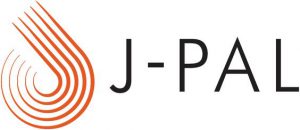 Another collaboration between Community Jameel and MIT is the Abdul Latif Jameel Poverty Action Lab (J- PAL), which again has at its core the ambition to help people break out of poverty and live fulfilling lives. Its Labor Markets sector evaluates what works to get job seekers into the workforce, to ease young people’s transitions into the working world, to provide the skills entrepreneurs need to succeed, and to help businesses grow and innovate.
Another collaboration between Community Jameel and MIT is the Abdul Latif Jameel Poverty Action Lab (J- PAL), which again has at its core the ambition to help people break out of poverty and live fulfilling lives. Its Labor Markets sector evaluates what works to get job seekers into the workforce, to ease young people’s transitions into the working world, to provide the skills entrepreneurs need to succeed, and to help businesses grow and innovate.
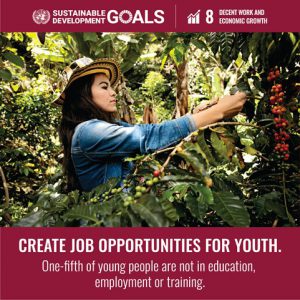 Relevant projects include research into the effectiveness of subsidized training programs for young people in Uganda, and into the impact of financial control on women’s labor supply and gender norms in India.
Relevant projects include research into the effectiveness of subsidized training programs for young people in Uganda, and into the impact of financial control on women’s labor supply and gender norms in India.
In addition to supporting policymakers in applying evidence from randomized evaluations to their work, J-PAL experts write policy insights that synthesize general lessons emerging from the research, condense results from evaluations in policy publications and evaluation summaries, and fund new research through its Jobs and Opportunity initiative.
Creating opportunities
There is significant research to suggest that the COVID-19 pandemic has had a disproportionate impact on women, particularly with regards to work[5]. This is an area where Community Jameel has been working hard for over 15 years, helping women to access training and employment opportunities.
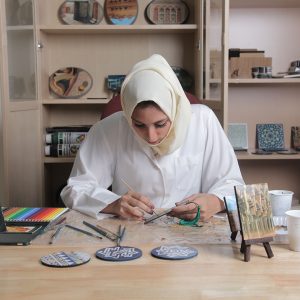
In 2006, Nafisa Shams was established in Saudi Arabia to provide women with an integrated work environment to help them produce high quality artisanal products. It does this through specialized training programs and production lines. These include a working from home program, which empowers Saudi women to achieve a balance between family responsibilities and an active role in the job market. Nafisa Shams has also launched Nafisa Shams Incubator, one of the first female business incubators, with a focus on design and crafts.
The success of Nafisa Shams builds on the achievements of Bab Rizq Jameel (BRJ) or ‘beautiful gateway to prosperity’ in Arabic, which formalized the employment opportunities creation initiatives of the Jameel Family into one entity, in 2003. BRJ helps young people in Saudi Arabia, Egypt and Morocco to find work. It matches people to jobs and helps create opportunities for employment as a step towards economic independence, while also widening access to finance and support for new businesses and startups.
Its services are split across three main programs.
- BRJ Recruitment seeks to bring positive change to the lives of promising young men and women through a range of effective employment and training programs.
- BRJ Microfinance provides loans to entrepreneurs, small and medium-sized enterprises (SMEs) and families, with flexible and affordable payment plans and easy monthly installments.
- BRJ Services, meanwhile, provides a comprehensive suite of business services designed to help SMEs, startups and business owners achieve their commercial ambitions.
Since its foundation, Bab Rizq Jameel and its key initiatives have supported tens of thousands of entrepreneurs, SMEs and families through interest-free loans, helped more than 248,000 women into work, and supported over 35,000 small businesses through various programs, such as a taxi ownership program. The total value of support it has provided exceeds US$ 500 million.
Also working to empower people and provide opportunities for them to excel and grow their skills is the Saudi chapter of the MIT Enterprise Forum, for which Community Jameel is a key partner. It was founded with the goal of promoting, encouraging and celebrating the entrepreneurship ecosystem specifically in Saudi Arabia through an annual competition. It organizes the Startup Investment Forum, a three-day exhibition that provides opportunities to startups from around globe to expand their businesses to the Saudi market and meet potential investors.
Similarly, at a regional level, MITEF Pan Arab’s main goal is to promote and enrich the entrepreneurship ecosystem in the Arab World, while supporting startups and entrepreneurs in the region through a diverse portfolio of programs and initiatives designed to facilitate economic growth.
Building resilient infrastructure

Our commitment to investing in the ‘infrastructure of life’ to the benefit of our society is nowhere more physically evident than with Fotowatio Renewable Ventures (FRV), the flagship renewable energy arm of Abdul Latif Jameel Energy and Environmental Services.
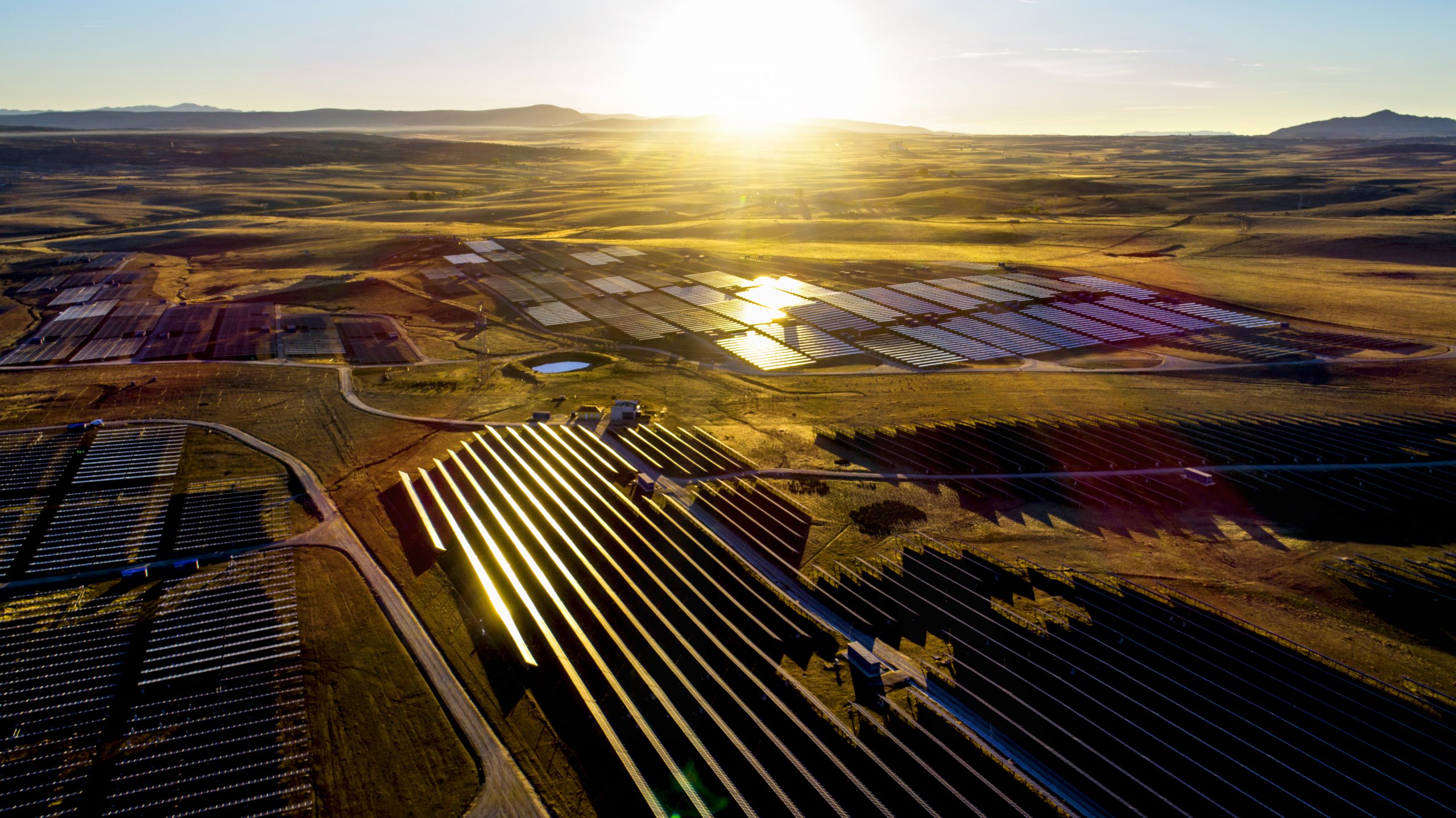
FRV is helping the transition to renewable sustainable energy and exploring new technologies to tackle climate change. It has a presence on five continents, has developed over 50 renewable energy plants and has a project portfolio of over 2.7 GW in global solar markets across Australia, the Middle East, Europe, India, Africa, USA and Latin America with a pipeline of over 9 GW of projects currently under development.[6]
One of its biggest markets is Australia where it has invested a total of US$ 1 billion to date. In December 2020, it secured approval for its ninth solar farm, at Walla Walla, which will supply clean energy to 90,000 homes and businesses. Walla Walla joins existing projects Metz, Sebastopol, Goonumbla and Moree solar power plants, all in New South Wales, along with solar farms at Dalby and Lilyvale (Queensland), and Winton (Victoria).
The Dalby plant, in particular, is an indication of FRV’s contribution to building resilient infrastructure to enable sustainable industrialization, in line with the objectives of SDG 9. The development is a hybrid power plant that combines photovoltaic solar power generation with co-located battery storage. It is FRV’s first hybrid project in the country and one of the first battery energy storage system projects in Queensland.
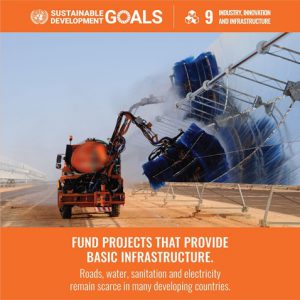 Another rapidly expanding market for FRV is Latin America, particularly in Mexico and in Chile, which has one of the continent’s most advanced renewables sectors.
Another rapidly expanding market for FRV is Latin America, particularly in Mexico and in Chile, which has one of the continent’s most advanced renewables sectors.
One of its developments in Chile is a hybrid solar-wind project with the potential to supply almost 250,000 homes with clean energy, all year round. The project is split between two sites – a solar power plant in the north of the country and a wind plant in the south.
FRV also has two major plants in Mexico, at San Luis de Potosi and at Potrero.
With these two projects, it now has an installed capacity of 640 MW in Mexico, having grown to become a relevant player in a very short period of time. It is exploring further opportunities in Uruguay, Brazil, Peru and Colombia.
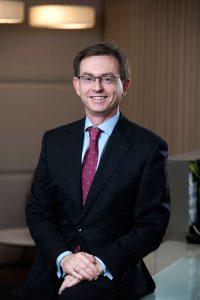
Chief Executive Officer, FRV
Further afield, Abdul Latif Jameel is developing new opportunities in the wind power sector. In 2019, Abdul Latif Jameel General Trading Japan launched two micro wind turbines at Cape Erimo in south-east Hokkaido. Cape Erimo is known as ‘wind town’ in Japan, as the wind blows at over 10 meters/minute for more than 260 days a year, making it one of the strongest wind potential areas in the country.
“As the world faces one of the biggest challenges it has ever known, we are proud to be at the heart of the battle, driving forward a new vision for the world’s energy landscape and transferring world-class skills, knowledge and best practice to the communities in which we operate,” says Daniel Sagi-Vela, CEO of FRV.
Energy innovation
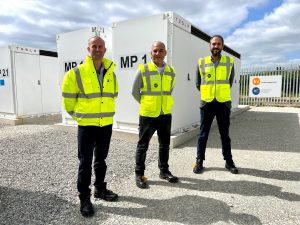
Utility-scale battery storage technology is set to revolutionize the power generation sector and is essential for building infrastructure that is both resilient and sustainable.
It enables energy from fully sustainable sources like solar and wind power to supply our energy needs 24/7, even if there is no wind or no sunshine.
FRV is already a pioneer in this game-changing technology.
As well as the plant at Dalby, Australia, it has partnered with British developer Harmony Energy on a 15 MWh utility-scale battery array at Holes Bay, Dorset, and also at Contego, West Sussex, both in the UK.
This topic is explored in more depth in this Spotlight podcast, hosted by Fady Jameel.
FRV has recently announced the UK’s largest battery energy storage project which will be developed at Clay Tye in Essex.
FRV-X, the dedicated innovation arm of FRV, is taking this pioneering spirit into the transport sector, too, leading FRV’s involvement in the next generation of hydrogen-fueled public transport systems. The first of these projects is a partnership with the Professional Taxi Federation of Madrid to help replace at least 1,000 traditional cabs with green hydrogen-powered vehicles by 2026. Abdul Latif Jameel’s long-time automotive partner Toyota is supplying the new vehicles, with its record-breaking Toyota Mirai fuel cell model, capable of traveling up to 600km with zero environmental impact.
The second landmark project is in Alicante, the fourth most populated province in Spain, where FRV-X is joining forces with Vectalia to develop the first large-scale green hydrogen-powered bus transport system.
The liquid of life
The success of FRV is the ideal complement to the activities of Almar Water Solutions, part of Abdul Latif Jameel Energy and Environmental Services, in increasing the availability of perhaps the most important element of the infrastructure of life: water.
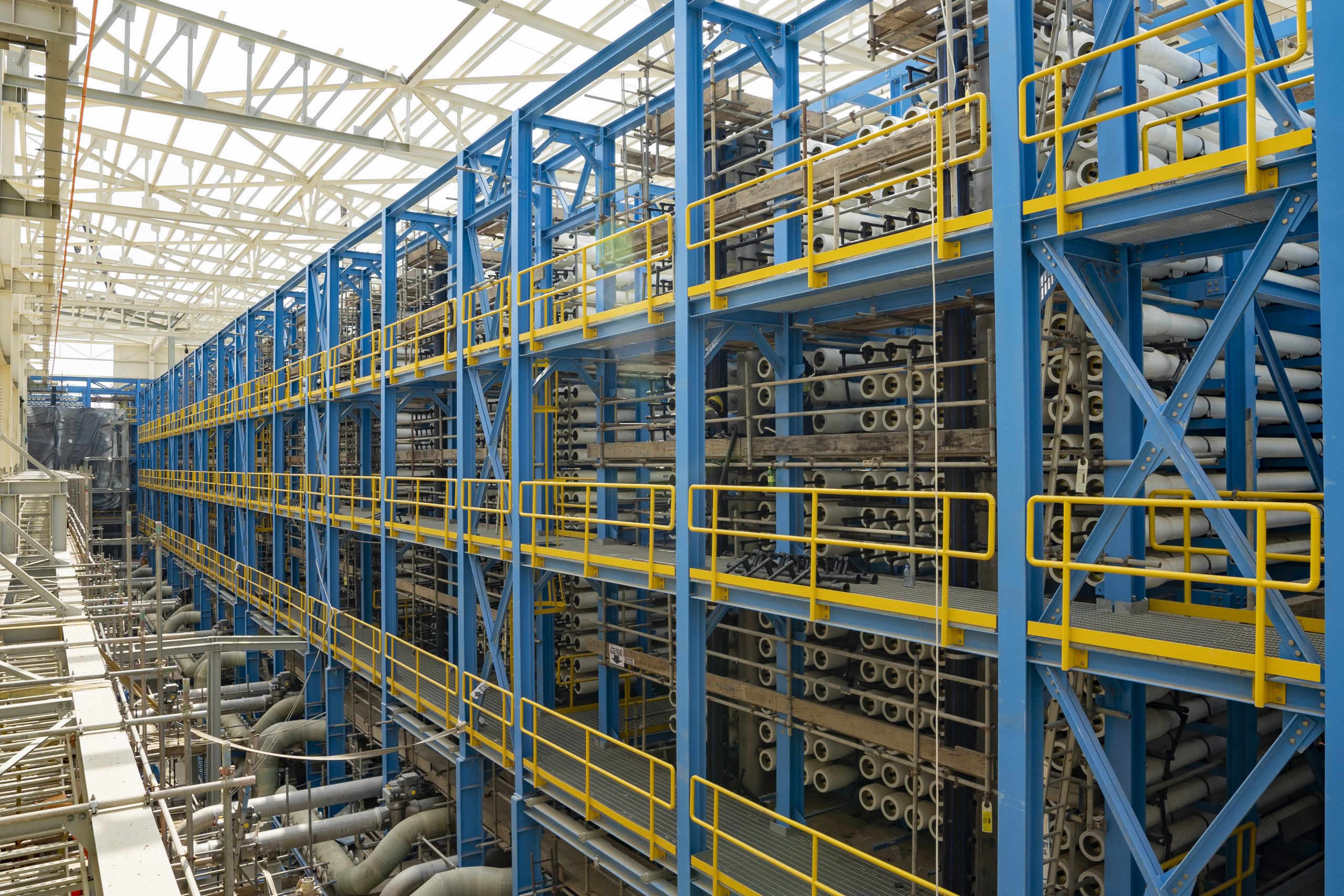
Almar Water Solutions is a specialist provider of technical capabilities for water infrastructure development, including design, financing and operation. In 2019, as part of a consortium, it was awarded the contract to develop one of the world’s largest desalination plants, the now award-winning Shuqaiq 3 IWP on the Red Sea cost of Saudi Arabia. This US$ 600m facility will have the capacity to deliver clean water to around 450,000 cubic meters of fresh water daily, serving over 1.8 million people.
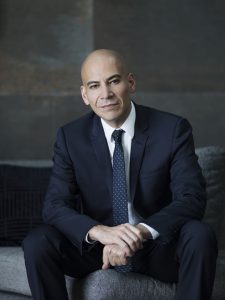
Almar also has a major stake in the Muharraq wastewater treatment plant in Bahrain, and is rapidly expanding its operations in Chile and Egypt. The growth of its portfolio of water infrastructure assets is a sign of the intent and commitment of the Jameel Family to tackling this most pressing of challenges, and to improving access to sustainable water supplies for communities across the globe.
As Fady Jameel, Deputy President and Vice Chairman, Abdul Latif Jameel, explains in his Spotlight article:
“Innovating, developing and investing in processes and technologies that enable us, as a society, to provide an adequate supply of water for our communities, industries and agriculture – in a way that doesn’t harm, but is in harmony with the environment – is one of the biggest challenges we will ever face.”

Facilitating a more sustainable approach to business
Finding ways to encourage and facilitate more responsible consumption and production – the goals of SDG 12 – will require wholesale changes to our society and communities, as people adapt to a way of life that is more efficient, more sustainable and less wasteful.
As a prolific and active advocate for the principles of kaizen and the reduction of waste and wasteful processes, Four Principles, Abdul Latif Jameel’s Lean Management consultancy, is active across the Middle East in providing advice and training to drive both commercial and governmental sector activity towards a zero waste system. Their approach is grounded in the basic principles of Lean:
- Define value from the standpoint of the customer
- Identify value and remove waste
- Replace waste with value
- Continuously improve
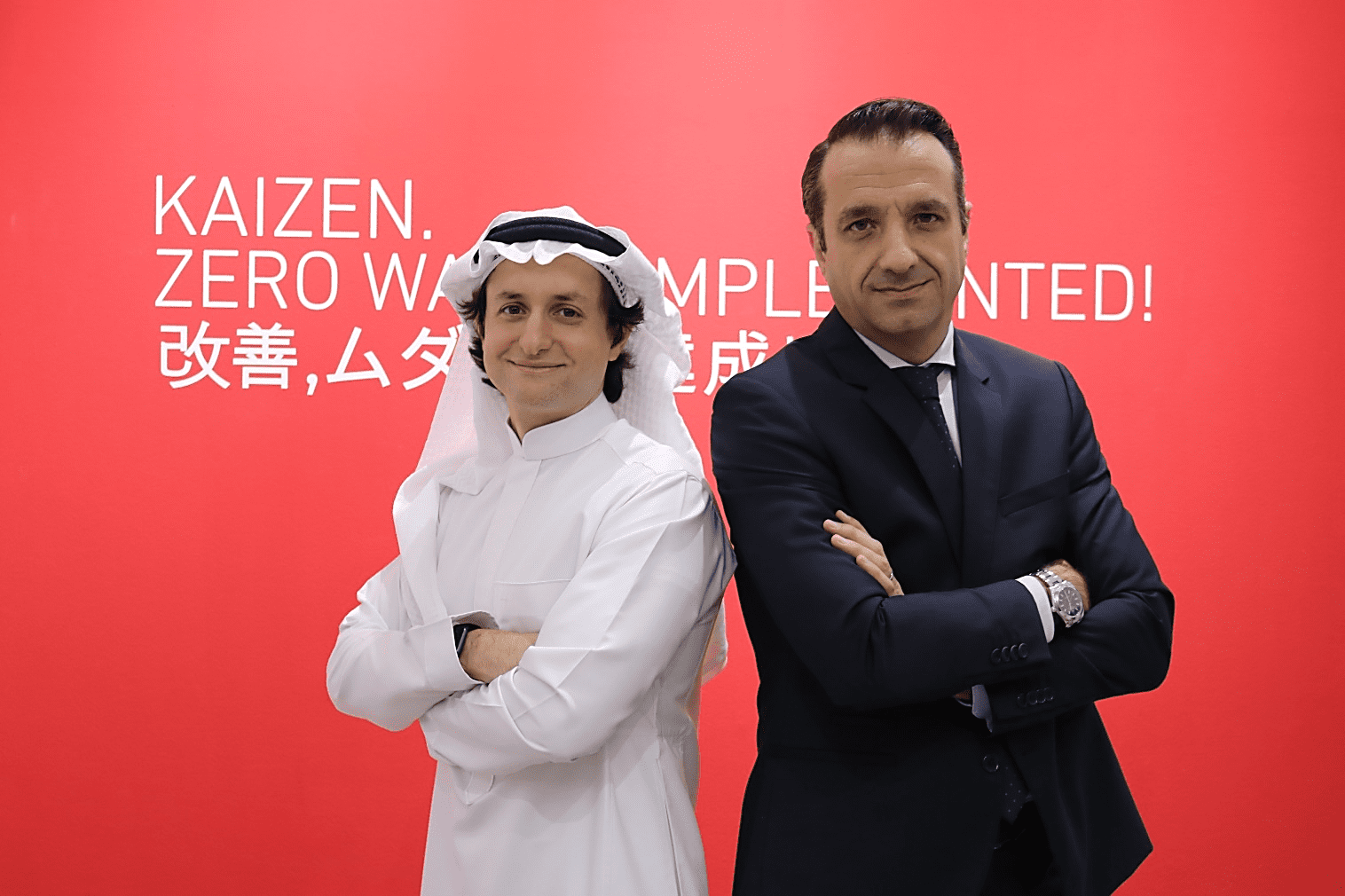
This is enabling government and business to adopt responsible consumption and production practices. Not cost-cutting for its own sake, but the process of embedding long term, sustainable efficiencies that eliminate waste, improve returns and at the create value for the customer.
The activities of Four Principles, Almar Water Solutions, FRV and all the other initiatives outlined above, are symptomatic of the commitments and investments the Jameel Family is proud to be contributing to the ambitious goals of the SDGs. It is an approach and a vision that dates back more than 75 years to the founding of Abdul Latif Jameel, and which we hope will stretch even further into the future.
“Through the choices and investments we make today, we can make a real contribution to safeguarding our society, our way of life and our planet for future generations. With innovation and determination, we can work together to implement more sustainable, equitable ways to create opportunities for all, strengthen our communities and develop our economies,” says Fady Jameel, Deputy President and Vice Chairman of Abdul Latif Jameel
Learn more about how the Jameel Family’s activities are contributing to the Sustainable Development Goals by visiting: https://jameel75.com/sdg to watch our video and download a summary report.
[1] https://sdgs.un.org/goals/goal8
[2] https://sdgs.un.org/goals/goal9
[3] https://sdgs.un.org/goals/goal12
[4] https://undocs.org/en/E/2021/58
[5] https://www.un.org/sites/un2.un.org/files/policy_brief_on_covid_impact_on_women_9_apr_2020_updated.pdf
[6] https://frv.com/en/#





 1x
1x

 Added to press kit
Added to press kit


